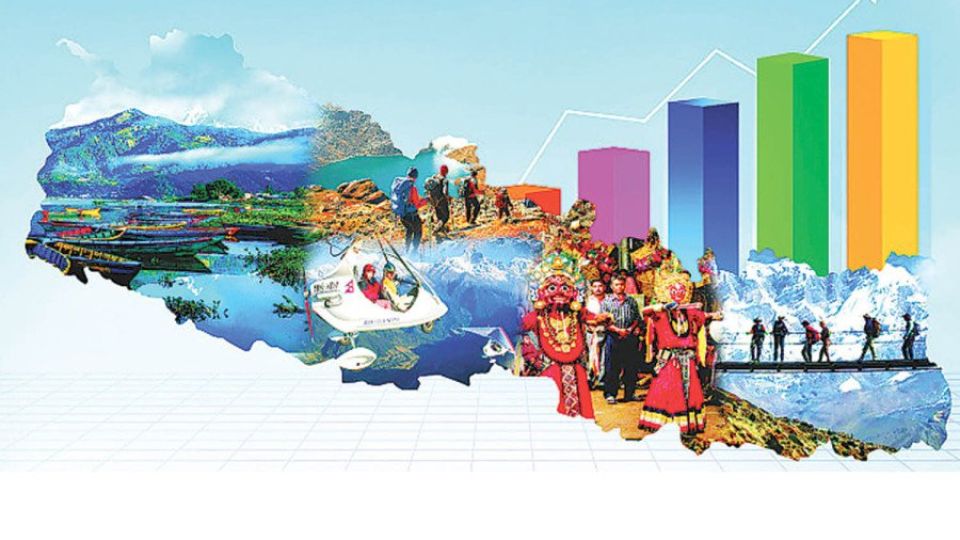July 26, 2023
KATHMANDU – In June 2012, the New York Times published a piece titled “Nepal, on the brink of collapse”. Similarly, in 2013, the Foreign Policy pointed out that Nepal, as a state, was most likely to fail, giving some alarming indicators. Recently, the Economist, in its July 4, 2023 edition, carried out a piece about China’s fragile or failing neighbours, including Nepal. Although such stories seem developed from a geopolitical perspective, they construct images and narratives of Nepal as a weak, fragile and failed nation. Interestingly, though, Nepal has not only survived but also thrived in multiple ways, and the “failed state” thesis can be outrightly rejected.
There are two sets of arguments that carry merit and raise some fundamental questions: Why has Nepal always been looked at from the state fragility perspective; and why, despite many ups and downs, does Nepal remain a soft state? To answer the first question, we must consider state fragility factors based on the core functions of the state, such as state authority, state capacity and state legitimacy. The state authority has become impotent, and its capacity is sharply deteriorating. Furthermore, the state-bearing institutions have been systematically eroded, and various actors have continuously attacked them. The only institution that remains functional without much problem, at least as of now, is the Nepali Army. The entire mechanism of governance, for its part, is problematic, and its repercussions multifaceted and manifested in various forms. Unfortunately, the lack of trust in politics, political leaders and political parties is part and parcel of all these phenomena.
Nepal has also failed to create minimum economic opportunities for its bulging youth population. More than one-fourth of the country’s population lives in foreign countries for their livelihood. For the first time, nearly 750,000 people have acquired labour permits, and more than 100,000 students have received no objection letters for their study abroad. When most youths opt not only to leave the country and even wish to give up their citizenship, it could have consequences for the state’s legitimacy. Since 1950, Nepal has survived at the mercy of foreign countries for the majority of its infrastructures, including hardware and software. Whether one agrees or not, if remittances stop coming, donors withdraw their support and neighbours and friendly countries stop helping, Nepal’s progress will come to a standstill.
Recent events like the loan shark episode and the Bhutanese refugee cases show how state power has been abused and misused. While the former is related to the misappropriation of state power by influential people, the latter is closer to the state-sponsored “human trafficking”.
The second question concerns why, despite all these anomalies, Nepal is moving ahead without much disturbance. There are certain reasons behind it. First, the social fabric and resilience of Nepali society is solid, due to which the impact of various conflicts, including the Maoist conflict, was not too big. Nepal is largely a ‘relational’ society, where differences and disputes can easily be doused. Likewise, many people are still making their livelihoods in their own way. Second, Nepal has largely resolved some of its political issues and navigated the difficult terrain. In that regard, it has managed to recover from the devastating 2015 earthquakes, promulgated the new constitution in the same year, implemented federalism and conducted a series of elections at federal, provincial and local levels. Moreover, it has also more or less dealt with the Covid-19 pandemic, which became an international crisis. Taken together, the country has been able to address and manage three different types of problems before they became significant issues: Natural disasters, pandemics and internal political dynamics.
However, there are high chances that the extant social fabric and resilience may not remain the same, due to two reasons. First, the political economy is undergoing significant changes and will surely sprout its own sets of consequences for society. Second, the social engineering that is underway may not yield positive impacts. In fact, there is no reason to be complacent about it. Earlier this year, during a farewell programme for 12th-grade students at a school in Nepal, some students wore shirts with farewell notes “Aba khadi ma bhetaula” (We shall meet in Gulf). This moment was not only emotional and heart-wrenching, but it also highlighted the stark reality of the country.
Likewise, Nepal is in the fourth phase of its democratisation, which is more challenging than the previous three. This phase needs effective delivery from both the state and political system. Democratic practices in the country, however, reflect otherwise. Despite 22 percent of the national GDP coming from the revenues collected through various taxes, it is neither considered suitable for a functional and sustainable democratisation process nor for the economic health of the country. Nepal imposes the highest taxes (39 percent) on various services in South Asia, making it a truly extractive state as the delivery to tax ratio is meagre.
Considering the aforementioned factors, the Nepali state certainly requires some fixing, with fresh reflection in politics, policy-making, economic affairs and civil services. When we think of the Nepali civil service, it is neither “civil” nor “service”. Nepal ought to decolonise and diversify the discourses in these areas so that they are well connected with real stakeholders and that the trust between the state and the society is enhanced. There have been some significant achievements, of course, but they alone are not enough to generate hope, as we need visionary leadership. The Nepali state seems abandoned, with the political elite failing to take responsibility as they serve their own interests. Nepal, therefore, may not be a failed state, but it has become a rentier one. As a rentier and soft state, the country needs to be cautious about its fate.


